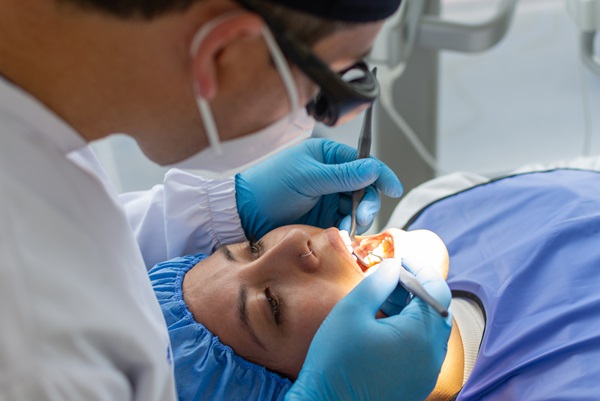When You Should Consider Visiting an Emergency Dentist

Most people visit the dentist once or twice a year, but it is impossible to know when a visit to an emergency dentist might be necessary. These dentists work on issues that must be treated immediately and cannot wait for a scheduled appointment. For people who are experiencing an issue with their dentition, knowing whether the problem requires emergency treatment can be confusing. However, certain types of injuries always benefit from the help of an emergency dentist.
When an emergency dentist can help
Emergency dentists do not usually require appointments because patients are not typically aware of the need to be seen beforehand. Patients should consider visiting an emergency dentist if any of the following situations occur.
A tooth has fallen out
A tooth that has come out of its socket is always an emergency. Whether it was knocked out during an activity or came out on its own, a dentist may be able to put it back in place as long as treatment begins quickly. Store the tooth in milk or saliva as soon as possible and until arrival at the dentist's. If the patient visits an emergency dentist right away, they may be able to place the tooth back in the patient's socket and help it reattach.
The face has suffered trauma
Trauma to the face is enough reason to visit an emergency dentist, even if the teeth do not appear damaged. Broken tooth roots or cracked facial bones can threaten the health of a tooth over the long term, even if they are not showing symptoms immediately. The dentist will likely perform X-rays to locate injuries that are not obvious, so patients are more likely to keep their teeth.
The gums are bleeding or oozing
A person’s gums may bleed lightly if they are brushing or flossing too hard, but gums that are persistently bleeding or oozing can be cause for concern. The discharge could indicate an abscess or pocket of infection that can creep into a tooth's pulp chamber if left untreated. The sooner an infection is addressed, the better.
A tooth has gone numb
The nerves inside a tooth provide sensations that help the brain interpret hot, cold, pressure, etc. If a tooth suddenly loses sensation, it could indicate that the nerves inside the pulp chamber are in immediate danger. See an emergency dentist right away for the best chance of saving the nerves and restoring the tooth to proper function.
A dental restoration has broken or fallen out
Dental restorations, such as fillings and crowns, cover vulnerabilities in teeth. If a restoration comes loose, the weaker inside of the tooth (the dentin and pulp) becomes exposed to bacteria that could quickly cause decay and infection. A filling or crown should be replaced as soon as possible after falling out, ideally on the same day, at an emergency dentist.
An emergency dentist can help
No one can predict when an accident might threaten their oral health. However, with an emergency dentist on standby, there is no reason to worry. Contact us if you are experiencing a dental issue that you believe may be an emergency, and we will help you maintain a healthy mouth even in a dire situation.
Are you considering an emergency dentist in the Grayslake area? Get more information at https://grayslake.brightsmile-dental.net.
Check out what others are saying about our dental services on Yelp: Emergency Dentist in Grayslake, IL.
Related Posts
Although teeth are the hardest part of our body and we generally do not worry about it happening, anyone that has broken or cracked a tooth knows how painful it can be. Despite being as careful as you can, you might still accidentally crack your tooth. This article will guide you through the steps you need…
A chipped tooth can lead to serious complications, which is why it is so important to undergo a repair. There are many ways that a general dentist can treat a tooth with a chip in it, ranging from composite bonding to dental veneer placement. While it can be tempting to let a chipped tooth go,…
Dental health professionals are responsible for providing a safe environment for emergency dentistry procedures during the Coronavirus (COVID-19) disease outbreak. Considering the risks of cross-infection in dental offices, the American Dental Association and the Center for Disease Control (CDC) have developed guidelines to control infections during any emergency dentistry care. This includes a thorough cleaning…
A general dentist might recommend that patients get x-rays during a dental appointment. X-rays serve many purposes in dentistry, from providing a closer look at the health of the oral cavity to checking a child’s bite alignment. Although certain factors necessitate the need for dental x-rays, there is a basic guideline used by general dentists…
